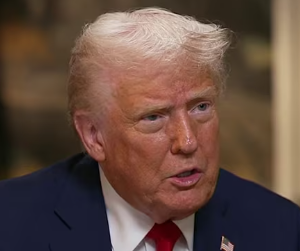President Donald Trump announced Friday that the United States is terminating all trade negotiations with Canada, citing Canada’s implementation of a Digital Services Tax (DST) that he called a “blatant attack” on American companies.
A Sudden Halt to Bilateral Talks
The move comes just weeks before a July 21 deadline that Trump and Canadian Prime Minister Mark Carney had set for reaching a new U.S.–Canada trade agreement. The two nations had been in private talks to update terms of the U.S.-Mexico-Canada Agreement (USMCA), which is due for renegotiation next year.
In a statement posted to Truth Social, President Trump wrote:
“Based on this egregious Tax, we are hereby terminating ALL discussions on Trade with Canada, effective immediately.”
He added that Canada would be informed within the next seven days what tariff it will be required to pay to do business with the United States.
Canada’s Digital Services Tax Takes Effect
Canada’s 3% Digital Services Tax, first passed in 2022, officially takes effect this month with retroactive collections dating back to 2022. The tax applies to large digital companies—regardless of whether they are based in Canada—who generate $20 million or more in revenue from Canadian users.
Affected services include online marketplaces, social media platforms, targeted advertising, and the sale of user data. U.S. tech giants such as Meta, Google, Amazon, and Uber are expected to be among the hardest hit. According to financial analysts, the U.S. tech sector is projected to owe approximately $3 billion in back payments to Canada under this policy.
Trump: “Canada Is a Difficult Country to Trade With”
Trump accused the Canadian government of mimicking the European Union’s anti-American tax model, and emphasized that Canada has historically imposed tariffs as high as 400% on U.S. dairy products. The president said Canada remains “a very difficult country to TRADE with,” citing long-standing imbalances and protectionist policies.
Despite other countries like the United Kingdom having similar digital taxes, Trump’s administration has not taken retaliatory action in those cases—suggesting the Canada policy was viewed as uniquely harmful or hostile.
Fallout in the Markets
Trump’s announcement had an immediate impact on the markets:
-
The U.S. dollar rose 0.7% against the Canadian dollar within hours of the statement.
-
The S&P 500, which had hit an all-time high earlier in the day, lost momentum after the news, reducing its gain to just 0.21% by late afternoon.
Market analysts described the reaction as a sign of investor concern about growing trade uncertainty between the two nations.
Possible Retaliation and Broader Implications
Canada’s ambassador to the United States had earlier acknowledged that a comprehensive trade deal would be difficult, and Trump’s announcement appears to confirm those fears. With $762 billion in annual trade between the U.S. and Canada, any escalation—particularly the imposition of blanket tariffs—could have significant economic consequences.
According to reporting from Global News, Canada is already exploring possible retaliatory measures, similar to the tit-for-tat tariffs seen earlier in Trump’s second term when initial levies were imposed on Canadian aluminum, lumber, and other goods.
A Canadian government official speaking anonymously said Ottawa was “surprised but not unprepared” for the breakdown in talks, and confirmed contingency discussions were underway.
The Broader Context: America First 2.0
Trump’s move aligns with his broader “America First 2.0” economic platform, which prioritizes U.S. production, seeks to reduce dependency on foreign goods, and aims to hold allies accountable for what he has frequently described as “decades of one-sided trade deals.”
Earlier this week, the Trump administration also warned Spain of trade consequences if the country continues to fall short on defense spending obligations under NATO—part of a broader strategy to link defense commitments with trade access.
With the Canadian announcement, Trump is signaling that the same hardline approach applies to North America as well.
What Comes Next
While no formal trade deal is expected to be signed in the near term, the USMCA renegotiation remains on the calendar for 2026, and both nations will likely revisit their economic terms long before then.
For now, however, all eyes are on the seven-day tariff deadline Trump imposed, and on how Canada will respond.
h/t: Steadfast and Loyal

